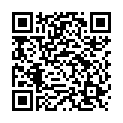|
|
|
| Module code: KIB-EMBL |
|
2V+2P (4 hours per week) |
|
4 |
| Semester: 6 |
| Mandatory course: no |
Language of instruction:
German |
Assessment:
Project
[updated 26.02.2018]
|
KI689 (P221-0074) Computer Science and Communication Systems, Bachelor, ASPO 01.10.2014
, semester 6, optional course, technical
KIB-EMBL Computer Science and Communication Systems, Bachelor, ASPO 01.10.2021
, semester 6, optional course, technical
KIB-EMBL Computer Science and Communication Systems, Bachelor, ASPO 01.10.2022
, semester 6, optional course, technical
PIBWI31 (P221-0074) Applied Informatics, Bachelor, ASPO 01.10.2011
, semester 6, optional course, technical
PIB-EMBL Applied Informatics, Bachelor, ASPO 01.10.2022
, semester 4, optional course, informatics specific
PIB-EMBL Applied Informatics, Bachelor, SO 01.10.2026
, semester 4, optional course, informatics specific
|
60 class hours (= 45 clock hours) over a 15-week period.
The total student study time is 120 hours (equivalent to 4 ECTS credits).
There are therefore 75 hours available for class preparation and follow-up work and exam preparation.
|
Recommended prerequisites (modules):
None.
|
Recommended as prerequisite for:
|
Module coordinator:
Dipl.-Inf. Ulrich Bruch |
Lecturer: Dipl.-Inf. Ulrich Bruch
[updated 10.11.2016]
|
Learning outcomes:
After successfully completing this module, students will be familiar with system design and programming techniques for embedded applications.
They will be able to use and customize bootloaders.
They will have acquired experience in working with real-time operating systems such as FreeRTOS.
Students will be capable of working with embedded Linux e. g. on a single board computer (Raspberry etc.).
They will be able to design simple, embedded systems.
They will have the know-how to use basic IoT technologies (e.g. 6LoWPan, COAP, MQTT,...).
[updated 26.02.2018]
|
Module content:
1. Introduction to the terms used in embedded Linux
2. Review course "Embedded Computing", build process, toolchain, cross compiler
3. Special mechanisms and techniques for the realization of bootloaders
4. Micro operating systems, structure, function, implementation, application - problem discussions
5. Embedded Linux using the example of a single-board computer - implementation of simple tasks in
user space, meaning and limits of embedded Linux, insight into kernel driver development using the example of a
Push button.
6. Use of embedded systems for the Internet of Things using a small weather station as an example,
presentation of common protocols and methods
Topics 2 to 5 will be accompanied by exercises.
[updated 26.02.2018]
|
Recommended or required reading:
Wolfgang Matthes "Embedded Electronics 1", Elektor-Verlag
Wolfgang Matthes "Embedded Electronics 2", Elektor-Verlag
Jürgen Wolf ?Cvon A bis Z?, Galileo Computing
Hans Werner Lang "Algorithmen", Oldenbourg
Jörg Wiegelmann "Softwareentwicklung in C für Mikroprozessoren und Mikrocontroller", Hüthig Verlag
Using the FreeRTOS Real time kernel (e-book at www.freertos.org [www.freertos.org])
FreeRTOR Reference Manual (e-book at www.freertos.org [www.freertos.org])
Jürgen Quade "Embedded Linux"
Jürgen Quade "Linux Treiber entwickeln"
Ralf Jesse "Embedded Linux mit Raspberry Pi und Co."
[updated 26.02.2018]
|


